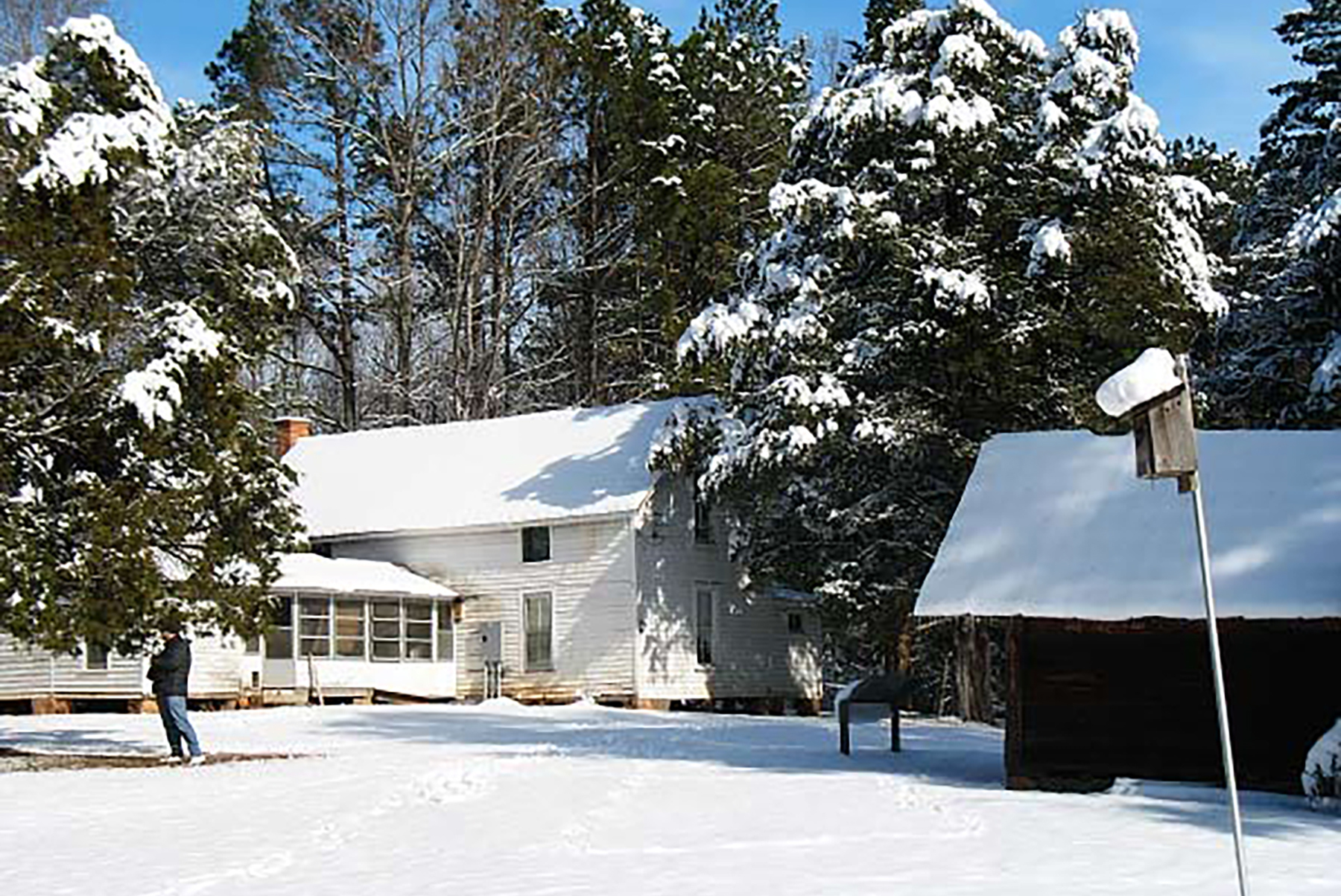Our Heritage
B.W. Wells’ Rockcliff Farm

High above Falls Lake in northern Wake County sits Rockcliff Farm, a late 19th century farmstead, frozen in time with only minor mid-20th century changes. Rockcliff Farm was the home of Bertram Whitter “B.W.” Wells and his second wife Maude. Dr. Wells was a pioneer ecologist born and educated in Ohio and earned his PhD from the University of Chicago, but was drawn to North Carolina by our state’s wide-ranging eco-systems and its abundance of native plants. Wells was the first scientist to realize that North Carolina has the same botanical makeup from the mountains to the ocean that can be found along the entire eastern coast of North America – from the spruce forest of Canada located in the North Carolina mountains to the palm trees of Florida also found on Bald Head Island.
In 1919, B.W. Wells came to what is now North Carolina State University to head the Department of Botany and Plant Pathology, a position he would hold for more than 30 years. In 1932, he published The Natural Gardens of North Carolina, which is still in print today and is often included on a short list of internationally recognized classic publications on natural history. Upon retirement, Wells and his wife were drawn to a property in northern Wake County where he had studied with his botany students for years because of the wealth of wildflowers and mountain laurel found there, as well as some spectacular geographic features – specifically, alongside the Neuse River, a rocky cliff, caves, and a rare volcanic plug, known as Zeagle’s Rock, that reaches some 75 feet above the river. Rock formations along the river proved to be like those found in Morocco. It is speculated that this is from the time when the continents collided, leaving rock deposits from the African Continent in what is now Piedmont North Carolina.
As the story goes, Dr. and Mrs. Wells were headed to Durham to purchase a new washing machine from Sears when they stopped for breakfast and noticed an advertisement in the city’s paper for the sale of the site Dr. Wells knew so well. They decided to make an offer on the property – the Ray family farm, called Rockcliff Farm – using the washing machine funds as a down payment. All of its magnificent botanical and geographical features attracted the Wells to the idyllic setting, to which they soon retired.
Dr. and Mrs. Wells made modest changes to the circa 1895 farmhouse. They also kept the former owners, the Ray family, who lived in a nearby house on the property, as caretakers. In retirement, Dr. Wells became a rather noted artist, painting pastoral scenes and portraits of many local residents. One of the improvements to the property was the addition of a studio just a few feet from the kitchen. There Dr. Wells would work on his paintings, and the couple would relax by a fire in a huge stone fireplace relocated from the site of an 18th-century cabin built by the original land owners, the Lowery family, around 1790. Between the kitchen and the studio can be found a graveyard with members of the Lowery and Ray families, along with several other related family members.
Since the construction of Falls Lake and the death of Mrs. Wells, the site has been under the care of the State Parks system and supported and opened to the public only twice a year by the B.W. Wells Association, a private non-profit group of local citizens. The Association has long wished for more public access to one of the most beautiful historic sites in Wake County. Recently, much has happened to make the B.W. Wells site accessible. In 2021, the Wake County Historic Preservation Commission passed a resolution recognizing the site as significant to the history of Wake County and North Carolina. Former Wake County Commission Chair Sig Hutchinson worked to transfer the site from State Parks to Wake County Parks. Recently, Hutchinson made this statement concerning the site’s future: “B. W. Wells Park is an incredible opportunity to honor the life and times of Dr. Wells, as well as build stronger partnerships between Wake County Parks, NC State University, NC State Parks, the B. W. Wells Association and the Wake County Historic Preservation Commission. This historic and natural park will show not only how people thrived in 19th and 20th centuries, but it will also allow our residents and guests the opportunity to understand the diversity of nature that Dr. Wells preserved and wrote about in his book The Natural Gardens of North Carolina.”
For more on B.W. Wells and Rockcliff Farm, visit bwwells.org. Copies of The Natural Gardens of Rockcliff Farm are available from the B.W. Wells Association or from the Wake Forest Historical Museum.
Photo courtesy of bwwells.org.
Ed Morris
Executive director of the Wake Forest Historical Museum & Wake Forest College Birthplace.

